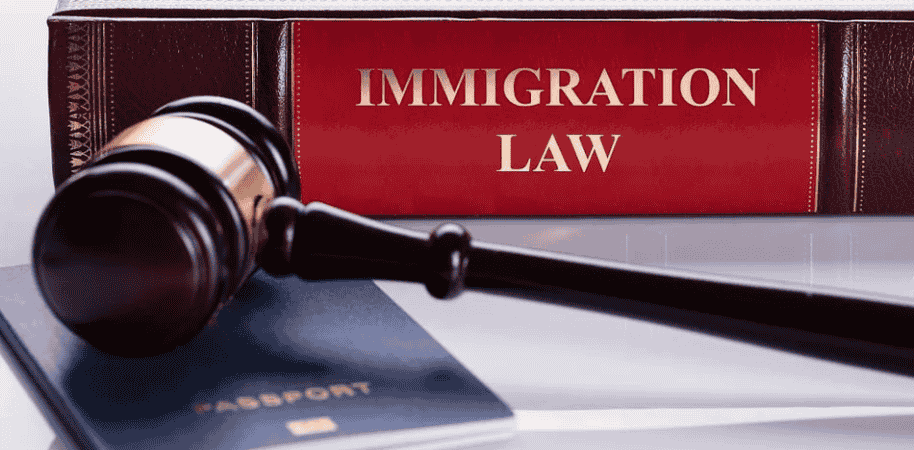Introduction
Navigating Canada’s immigration process can seem daunting, particularly when you are uncertain about legal fees. As a permanent resident applicant, a deportation candidate, or a family reunification seeker, knowing how much does immigration lawyer cost in Canada allows you to budget accordingly and make the right choices for your case.
Why Do People Hire Immigration Lawyers in Canada?
Moving to Canada is a big step, and the immigration process can be confusing. That’s why many people turn to immigration lawyers. These professionals help make the journey smoother by guiding you through the legal side of things.
They Understand the System Deeply
Canada’s immigration laws are complex and can change without much notice. Immigration lawyers are trained to keep up with these updates. Whether you’re applying for a visa or dealing with a more serious issue like removal, they know how to handle it correctly.
They Help You Get Things Right the First Time
Even a small error on your immigration forms can cause delays or result in a denial. Lawyers double-check every detail to make sure your application is filled out properly and includes all the right documents.
They Can Speak on Your Behalf
If your case involves going to an immigration hearing or appeal, your lawyer will represent you. They know how to present your case clearly, follow court procedures, and make a strong argument in your favor.
They Make the Process Less Stressful
There’s a lot of paperwork, deadlines, and communication involved in immigration. A lawyer takes care of these tasks, so you don’t have to do it all alone. This saves time and gives you peace of mind.
How Much Does Immigration Lawyer Cost in Canada (Estimates Only – Always Vary)
The cost of hiring an immigration lawyer in Canada can vary significantly depending on the complexity of the case, the type of immigration service needed, the region you’re in, and the lawyer’s experience. In Canada, immigration lawyer fees vary based on the type of service, case complexity, and location, but generally range from $1,500 to $10,000+. While exact pricing is always case-specific, here is a detailed breakdown of typical fee ranges and what influences them.
General Fee Estimates by Immigration Service (CAD)
- Study Permit: $1,500 – $2,500
- Work Permit: $2,000 – $3,500
- Express Entry (Full Representation): $3,000 – $5,500
- Spousal Sponsorship: $3,500 – $6,500
- Provincial Nominee Program (PNP): $3,000 – $6,000
- Humanitarian and Compassionate Applications: $4,000 – $7,500
- Appeals or Inadmissibility Cases: $5,000 – $10,000+
What Factors Affect How Much Does an Immigration Lawyer Cost in Canada?

Case Complexity
Simple cases, such as applying for a study permit or a basic Express Entry application, usually cost less. More complicated matters, such as inadmissibility issues, past refusals, or Humanitarian and Compassionate applications, require additional time, evidence gathering, and legal strategy, which increases the cost.
Type of Legal Service
Full legal representation includes preparing and submitting applications, handling communication with immigration authorities, and responding to procedural requests. Alternatively, some clients may choose document review or legal coaching, which is more affordable but limited in scope.
Geographic Location
Immigration lawyers practicing in major cities such as Toronto or Vancouver often charge 20–30% more than the national average due to higher overhead and demand. Lawyers in Montreal or Calgary may be slightly above average, while those in smaller towns or rural regions may offer more competitive pricing.
Lawyer’s Experience and Reputation
Senior lawyers with strong track records and niche expertise may charge more, especially for high-stakes cases. However, this investment often results in a more strategic and efficient process, particularly in appeals or complex filings.
Initial Consultations and Fees
Initial consultations usually cost between $200 and $500, depending on the lawyer and the level of detail offered during the session. Some lawyers may apply the consultation fee toward your total legal cost if you decide to retain them.
Why Do These Costs Matter?
While hiring an immigration lawyer does require a financial commitment, it can help prevent delays, rejections, and missteps that often come with self-prepared applications. A well-handled case can improve your chances of approval and save time and money in the long run.
Flat Fees vs. Hourly Billing: What’s the Difference?
When hiring an immigration lawyer in Canada, understanding how fees are charged is key to making an informed decision. Lawyers typically use flat rates, hourly billing, or a hybrid of both. Here’s a breakdown to help you decide what’s right for your situation.
Flat Fee Structure
Flat fees are set in advance for specific legal tasks, regardless of how much time the lawyer spends on them.
Benefits:
- Cost certainty: You know exactly what you’ll pay from the beginning.
- No hidden costs: If the process takes longer than expected, your fee stays the same.
- Efficiency-focused: Lawyers are motivated to handle your case effectively.
- Easier comparison: Flat rates allow you to evaluate options across firms more easily.
Considerations:
- Not always cheaper: For quick or simple matters, you may end up paying more than you would with hourly billing.
- Limited scope: Services outside the agreed scope—like appeals or unexpected legal hurdles—may come with added charges.
- Less flexibility: If your case changes significantly, you may need to renegotiate fees.
Flat Fees Work Best For:
Well-defined cases such as Express Entry applications, family sponsorships, or basic work permits where the legal process is straightforward.
Hourly Billing
Hourly billing means you’re charged based on the time your lawyer spends on your case, typically in specific increments (like every 10 or 15 minutes).
Benefits:
- Pay for what you use: You’re billed only for actual work done.
- Adaptability: If your case shifts direction, hourly billing adjusts with it.
- Transparency: Invoices often include a breakdown of how time was spent.
- Good for simple tasks: Can be more affordable for short or limited legal matters.
Considerations:
- Uncertain total cost: You won’t know the full expense until the work is complete.
- Higher risk of rising fees: In complex or time-consuming cases, costs can add up quickly.
- Billing concerns: Disputes over how time was tracked or billed may occur.
- Efficiency varies: There’s less built-in incentive for the lawyer to finish quickly.
Best Suited For:
Cases with unknown outcomes or evolving legal needs—such as appeals, inadmissibility concerns, or long-term legal strategy.
Hybrid Billing Models
Many immigration lawyers in Canada now offer a blended approach. They may offer a fixed price for handling the main application, but switch to hourly rates if unexpected issues come up or extra legal help is needed later on.
Conclusion
Hiring an immigration lawyer in Canada can feel like a big financial decision, but in many cases, it’s a smart investment. When your situation is complex or the risks of making a mistake are high, having professional legal help can save time, stress, and money in the long run.
Before deciding, think about how complicated your case is, how comfortable you are handling legal steps on your own, and what might happen if something goes wrong. Keep in mind: the lowest price doesn’t always mean the best value. What matters most is finding someone experienced, trustworthy, and clear about their fees.
Take your time to do some research. Look up reputable immigration law firms in Canada, read reviews from real clients, and talk to a few lawyers before making your choice. This is more than just paperwork, it’s a step toward your future. Choosing the right legal support can make a real difference in your immigration journey.

